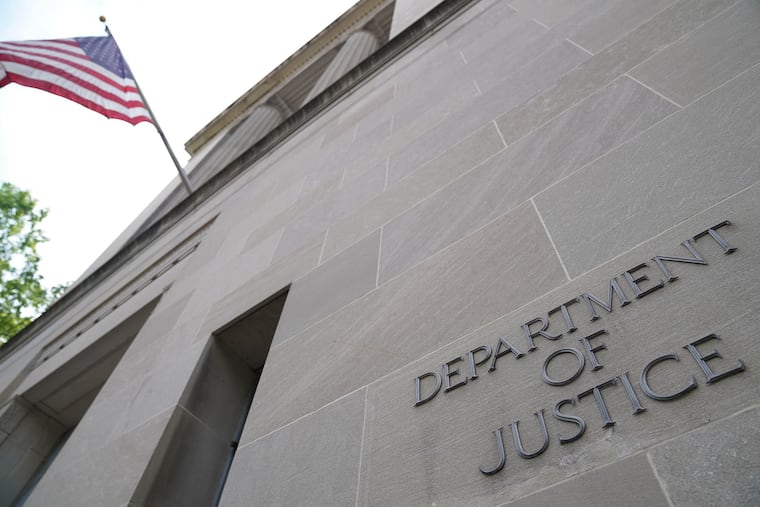The Justice Dept. has charged 474 people with trying to steal $569 million in coronavirus-related fraud schemes
In one case in Texas, the department said, a man pleaded guilty to submitting 15 fake applications under various business names to try to obtain $24.8 million in loans.

The Justice Department has charged 474 people over the past year with trying to swipe more than $569 million by using criminal fraud schemes connected to the COVID-19 pandemic and seized at least $580 million in civil proceedings, officials announced Friday, demonstrating how taxpayer-funded programs meant to ease the economic burden of the crisis have become susceptible to scammers.
The department said it has seen fraud attempts connected to several government aid programs. The Criminal Division's Fraud Section, for example, has charged at least 120 people in connection with fraud of the Paycheck Protection Program, a taxpayer-subsidized loan program regulated by the Small Business Administration which has long been of concern because of how funds were disbursed with relatively little oversight.
The department said it had also seen immense fraud in connection with the Economic Injury Disaster Loans program, and, along with the Secret Service and U.S. attorney's office in Colorado, had seized $580 million of possibly stolen money from that program through administrative procedures. That money, authorities said, is separate from the funds explicitly tied to criminal charges.
The department said it had found business owners inflating payroll expenses to get Paycheck Protection Program loans larger than what they would have qualified for, as well as "serial fraudsters" reviving defunct corporations or purchasing shell companies with no operations to apply for large loans.
In one case in Texas, the department said, a man pleaded guilty to submitting 15 fake applications under various business names to try to obtain $24.8 million in loans, when none of the businesses had employees or paid the wages he claimed they did. Most of those charged, the department said, spent the government aid on houses, cars, jewelry and other luxury items.
"The Department of Justice has led an historic enforcement initiative to detect and disrupt COVID-19 related fraud schemes," Attorney General Merrick Garland said in a statement. "The impact of the department's work to date sends a clear and unmistakable message to those who would exploit a national emergency to steal taxpayer-funded resources from vulnerable individuals and small businesses. We are committed to protecting the American people and the integrity of the critical lifelines provided for them by Congress, and we will continue to respond to this challenge."
The department said it had also seen significant fraud in connection with unemployment insurance, the use of which ballooned during the pandemic.
» READ MORE: How COVID-19 will change retail, home sales, travel and working from home
The department said it had charged more than 140 people with such fraud since the start of the pandemic, and it had found organized, international criminal groups trying to apply for the funds using stolen identities, as well as more run-of-the-mill fraudsters in the U.S.
That the department is seeing such a massive quantity of fraud is not necessarily surprising, given the scope of the pandemic and the amount of money the government has made available in aid. Early in the pandemic, Congress passed a $2.2 trillion relief bill known as the Coronavirus Aid, Relief, and Economic Security, or Cares Act. This month, lawmakers approved another $1.9 trillion relief plan.
Officials have seen such abuses during other disasters and economic crises, perhaps most comparably with the 2008 Troubled Asset Relief Program, which doled out hundreds of billions of dollars. That program’s inspector general’s office, which remains active, says its investigations have resulted in the recovery of $11 billion.